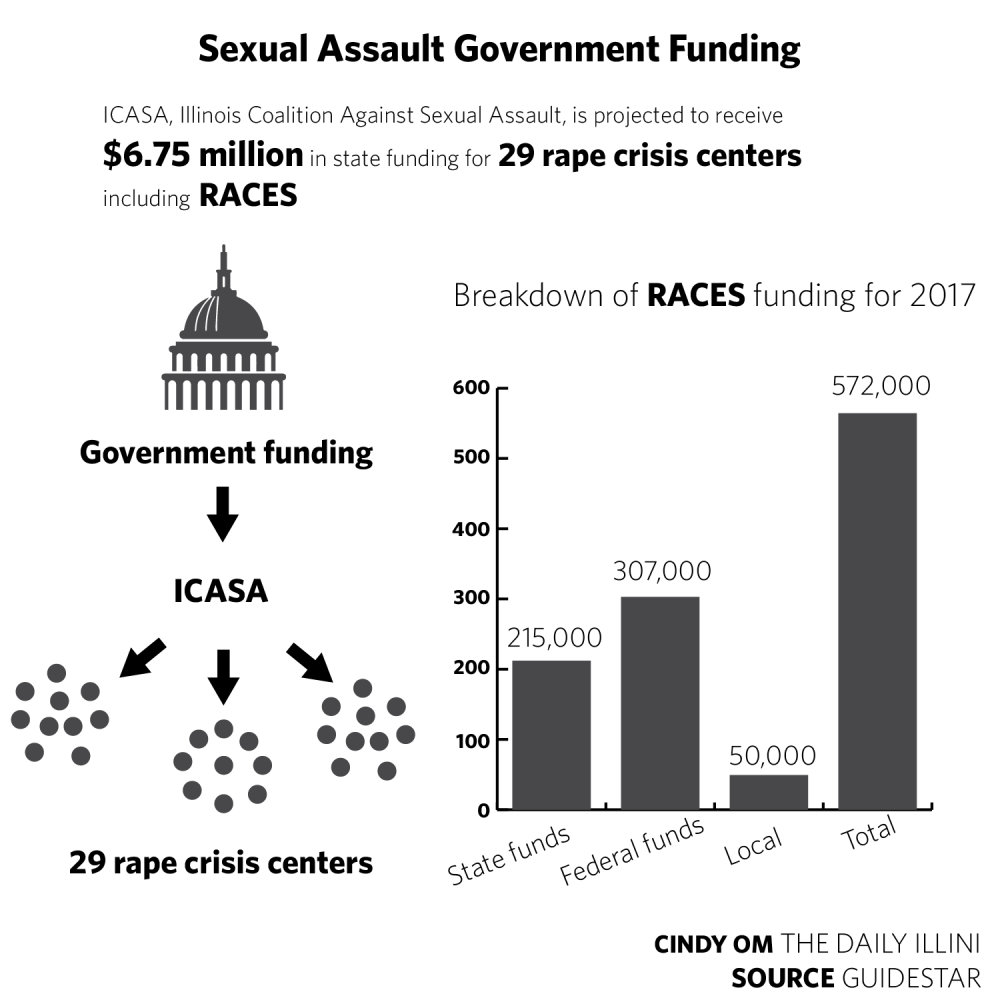Agencies attempt to recover from state budget impasse
August 31, 2017
Champaign County agencies are taking a breath after two years of stalled state funding, but directors are nervous that break won’t last long.
The passing of the state budget on July 6 has given places like the Rape Advocacy, Counseling & Education Services (RACES) in Urbana a solid dollar amount to expect, with RACES expecting $215,000 in annual state funding.
That amount is paired with federal funding, as well as local funds from county taxes. RACES Executive Director Adelaide Aime had an overall sense though that next year’s numbers could be in jeopardy.
“I am not confident that a year from now that the legislature is going to pass another budget,” Aime said. “So we are going to be very cool. But we are not going to lock ourselves in.”
Aime said RACES found itself locked in a difficult cycle while running on partial funding the past two years since a majority of its budget came from the state.
Get The Daily Illini in your inbox!
“It was horrible. First (RACES) cut staff hours, and then they had to lay people off,” Aime said. “And then after a whole year with no money, they continued laying people off, and really the agency went down to a skeleton and was only providing a sliver of services.”
Domestic violence shelter Courage Connection went through a similar gutting during the budget impasse. Executive Director Isak Griffith said the biggest pain was losing staff, and they are finding themselves trying to get back to where they were before the budget impasse.
Now that the center has state funding, Courage Connection is hoping to have a solid path forward without cutting services.
“We’re trying desperately to hire all the positions we lost,” Griffith said. “We know things are going to change, and we know the budget will eventually be cut by the state. But (having one) allows us to be more intentional.”
Polly Poskin, executive director of Illinois Coalition Against Sexual Assault (ICASA), said she’s “cautiously optimistic” about receiving funding for the next fiscal year.
“Having experienced this, one would always then have that memory — that anything can go wrong, will go wrong,” Poskin said. “I’m confident that our elected officials never want to put our state through that again. I’m going to operate on the premise that lessons were learned and difficult decisions had to be made.”
Currently, 29 rape crisis centers fall under ICASA’s support. Agencies, including ICASA, were forced to take out credit or use their reserves to keep the bare minimum of services available, she said.
Since ICASA owns its building, they used it for credit in fiscal year 2016 and borrowed nearly $1.5 million to distribute to the centers since most don’t own property, she said. That came with an interest of $700,000.
“The challenge of that is, you can’t borrow more money than you can pretty well project that you can pay off,” Poskin said. “We could have lost our building, and that was the best asset we had to help centers in time of crisis.”
ICASA is receiving almost the entire amount of funding it once received from the state. Funding for this year is $200,000 less — going from $6.8 million to $6.571, Poskin said.
The state will also reimburse ICASA for the $700,000 interest since it kept services operating.
“When more money is available we expect to be considered to increase because the services continue to increase,” Poskin said.







